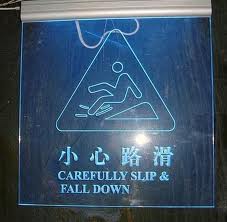
We hesitated a bit before posting this. It is not often that we can see a combination in one event that includes the perils of the Internet, workers’ compensation, dishonesty, and perhaps human greed combined with ignorance.
We find these cases interesting on a social level. Typically the amount of money misappropriated in cases like this of probable malingering is in the tens or hundreds of thousands; an amount that would result in criminal charges if a person walked into their employer or someones else’s house and stole it. But in the case of clear and convincing evidence that an individual is faking injury or extent of injury, denial of subsequent benefits or as in this case, payback of prior payments seems more common. What is the difference between this situation and theft and why is prosecution not the norm?
While the majority of claims are valid and respond to appropriate treatment and rehabilitation, cases of fraud and malingering when they occur are costly and troublesome, and underscore at times larger social issues. This case also underscores the value of searching for information about claimants that are not under their direct control in the medical context. Historically this involved surveillance, but as this case demonstrates, the Internet – typically social networking sites, often provides a wealth of intentional or unintentional self-disclosure.

Leave a Reply